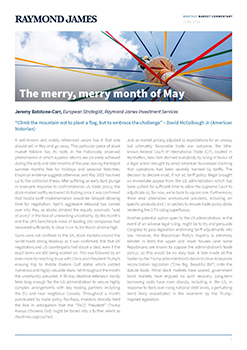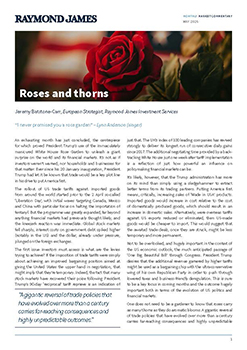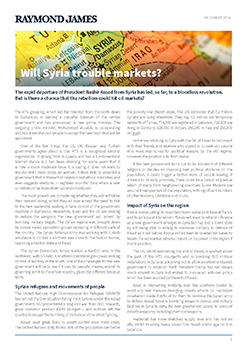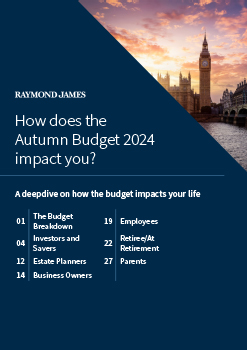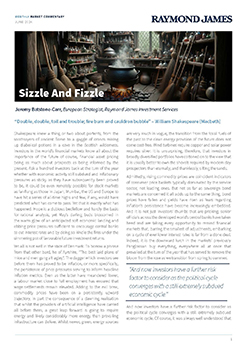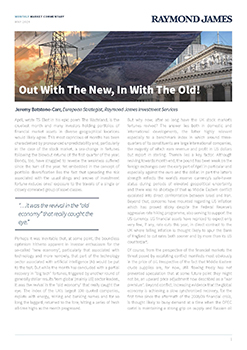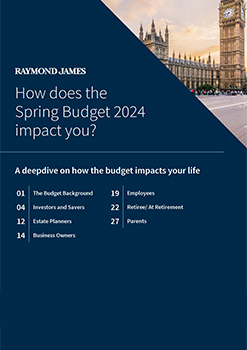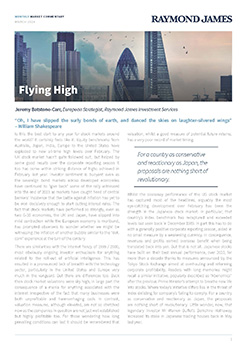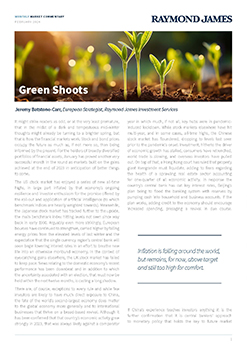Our latest Investment Strategy Quarterly considers the complexities of today’s markets while drawing insights from the past. This edition includes the historic and current impact of tariffs, asks if the US still holds its safe-haven appeal for investors, and examines energy costs and AI. Closer to home, we take a look at Labour’s first...
Continue readingThe merry, merry month of May
Despite stock markets making strong headway in May, uncertainty proved to be persistent. Our European Strategist, Jeremy Batstone-Carr considers the potential effects on the global economy....
Continue readingRoses and thorns
With the effects of the tariffs announced by Donald Trump in the White House Rose Garden still to play out, Raymond James European Strategist, Jeremy Batstone-Carr, considers some of the potential effects on the global economy....
Continue readingWill Syria trouble markets?
The exit of President Bashir Assad from Syria has resulted in a bloodless revolution so far. However, could the uprising have an impact on oil markets?...
Continue readingAutumn Budget Newsletter 2024
Our Autumn Budget Newsletter breaks down the Chancellor’s recent announcement, outlining what it means for you and helping you to plan for the upcoming calendar year....
Continue readingSizzle And Fizzle
In this month’s Market Commentary, our European Strategist, Jeremy Batstone-Carr, looks back on a ‘series of all-time highs’ for many global stock markets, efficient energy solutions needed to support the development of artificial intelligence, and potential impact of upcoming global elections on the financial markets....
Continue readingOut With The New, In With The Old!
In this month’s Market Commentary, Jeremy Batstone-Carr, our European Strategist, reflects on the recent resurgence of the ‘old economy’ and examines whether the upswing in the UK stock market can be sustained....
Continue readingSpring Budget Newsletter 2024
Our Spring Budget Newsletter breaks down the Chancellor’s recent announcement, outlining what it means for you and helping you to plan for the new tax year – which is almost upon us....
Continue readingFlying High
In this month’s Market Commentary, Raymond James European Strategist, Jeremy Batstone-Carr, looks back on the strong performance of many of the world’s leading markets, the ongoing popularity of investment in artificial intelligence, and whether this current stock market strength can last....
Continue readingGreen Shoots
In the first Monthly Market Commentary of the year, Raymond James European Strategist, Jeremy Batstone-Carr, looks back on the largely positive start to the year for many of the world’s leading markets, the struggles of the Chinese economy, and areas for investors to consider for the coming months....
Continue reading
